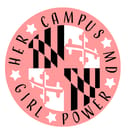Article by Freelancer Nina Branwell
The University of Maryland, Baltimore County recently announced that a woman — Valerie Sheares Ashby — will serve as the new president starting August 1. Here at the University of Maryland, College Park, there’s never been a female president.
But, the news received positive thoughts from students at this university, with women feeling like it’s a step in the right direction.
“I feel like that kind of plays into people seeing women as capable to be leaders and capable to be able to conduct others in a way that we haven’t seen in the past,” senior Karishma Ali, said.
Considering this recent development at a University System of Maryland school, female students are questioning female representation at this university.
“It’s important to see that transition. UMD might be a little bit behind on that, but I think it’s important to recognize that we’re making the change but it’s happening slower than it should,” Ali said.
Other students do not feel that representation is far behind.
“I think a lot of that just has to do with the fact that this is a very old campus. … I think there’s always room to add new additions and things like women who’ve done great things for the college,” Junior Charlotte Waldron said.
The representation of women on UMD’s campus became a question when comments were made by university administration during the Fall 2021 semester.
Over the last year, university President Darryll Pines became the center of scrutiny in the way he addressed female students and sexual assault allegations on campus.
“I think it’s about changing that portrayal, changing that angle of being able to see women as equals, which, you know, we’ve been fighting to do for some time now,” Ali said.
Women’s activism has been a staple in the history of the university, addressing policies and sexual assault on the campus. Yet in the 21st century, there has yet to be a female president elected.
This is frequently seen by students in academics within the university, especially in STEM majors.
“One of the girls I met was a [computer science] major. She was trying to recruit people — like women — to be in CS because majority of it’s men,” sophomore Elizabeth Sital said.
The A. James Clark School of Engineering has an undergraduate enrollment of 26% female compared to 74% male with only 1,078 women enrolled out of 4,083 total enrollment as of the fall 2021 semester.
“If a man can be an engineer … then a woman can too,” Sital said. “If they can do it, the women can do it too.”
Bringing more diversity to strengthen female representation in specific major departments is just one thing female students are doing on this campus in terms of advocacy. In recent years, the focus has shifted towards another women’s issue — sexual assault.
The #MeToo movement — which was started in 2006 — calls attention to men taking advantage of women in the work environment and empowering women to speak out.
“I don’t live on campus and I think if I did, I’d be cautious of things like that in terms of women’s rights, rape, sexual assault, just because, not that this is a campus-specific problem, but it is a general societal issue,” Waldron said.
Female students are left on their own to navigate college and ultimately the society that awaits them upon graduation.
“I even have a friend, she just graduated from UMD in December, and she’s working at a job where her manager is harassing her every single day,” said Ali. “But with the MeToo moment, you see that women’s empowerment, you see that people are more able to be encouraged to stand up for themselves and bring certain things to light.”


